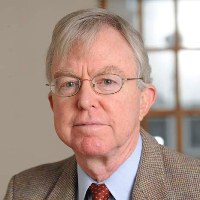Government Grants
Business Grants
Home Owner Programs
Federal Programs
About Us
FY 2016 Annual Program Statement requesting Concept Notes for Global Innovation Programs to Help the Humanitarian Community Better Respond to Refugees Outside of Camps
PRM seeks to support the development of new approaches and tools to strengthen humanitarian response to urban and other non-camp refugees globally.
UNHCR has issued two related non-camp policies - Policy on Refugee Protection and Solutions in Urban Areas (2009) and Policy on Alternatives to Camps (2014), and in 2011 PRM issued Principles for Refugee Protection in Urban Areas.
These documents recognize the new challenges posed by urban/non-camp environments and point to a range of new strategies required to meet the specific needs of vulnerable populations in these settings.
Consensus has formed around the need for humanitarian actors outside of camps to undertake entirely new models of assistance, moving away from service-delivery to facilitating access to existing services and from material assistance to efforts to foster self-reliance.
In many cases, this requires new roles for humanitarian actors:
to serve more as facilitators, advisors, and advocates than service providers.
Although a number of new strategies have been identified in principle, and guidance and best practices are steadily accumulating, the international humanitarian community still struggles to put these tools into practice, systematically and coherently, in non-camp settings around the world.
Additional tools and models of assistance need to be developed, tested, refined and adapted to help humanitarian actors respond effectively outside of camps.PRM is seeking the development and piloting of new tools and models of assistance that will enable the humanitarian community to address a range of challenges unique to urban/non-camp settings.
UNHCR has issued two related non-camp policies - Policy on Refugee Protection and Solutions in Urban Areas (2009) and Policy on Alternatives to Camps (2014), and in 2011 PRM issued Principles for Refugee Protection in Urban Areas.
These documents recognize the new challenges posed by urban/non-camp environments and point to a range of new strategies required to meet the specific needs of vulnerable populations in these settings.
Consensus has formed around the need for humanitarian actors outside of camps to undertake entirely new models of assistance, moving away from service-delivery to facilitating access to existing services and from material assistance to efforts to foster self-reliance.
In many cases, this requires new roles for humanitarian actors:
to serve more as facilitators, advisors, and advocates than service providers.
Although a number of new strategies have been identified in principle, and guidance and best practices are steadily accumulating, the international humanitarian community still struggles to put these tools into practice, systematically and coherently, in non-camp settings around the world.
Additional tools and models of assistance need to be developed, tested, refined and adapted to help humanitarian actors respond effectively outside of camps.PRM is seeking the development and piloting of new tools and models of assistance that will enable the humanitarian community to address a range of challenges unique to urban/non-camp settings.
Related Programs
Overseas Refugee Assistance Programs for Strategic Global Priorities
Department of State
Agency: Department of State
Office: Bureau of Population, Refugees and Migration
Estimated Funding: Not Available
Office: Bureau of Population, Refugees and Migration
Estimated Funding: Not Available
Obtain Full Opportunity Text:
FY 2016 Annual Program Statement requesting Concept Notes for Global Innovation Programs to Help the Humanitarian Community Better Respond to Refugees Outside of Camps
Additional Information of Eligibility:
(1) International Organizations.
International multilateral organizations, such as United Nations agencies, should not submit proposals through Grants.gov in response to this Notice of Funding Opportunity announcement.
Multilateral organizations that are seeking funding for programs relevant to this announcement should contact the PRM Program Officer (as listed below) on or before the closing date of the funding announcement.
Full Opportunity Web Address:
http://www.state.gov/j/prm/funding/index.htm
Contact:
Grants.gov Contact CenterPhone Number: 1-800-518-4726Hours of operation are 24 hours a day, 7 days a week. The contact center is closed on federal holidays.support@grants.gov
Agency Email Description:
Grants.gov Customer Support
Agency Email:
support@grants.gov
Date Posted:
2015-04-17
Application Due Date:
2016-03-01
Archive Date:
2016-03-31
Social Entrepreneurship
Spotlight
Childcare Charitable Group Named Top Social Enterprise

Employers For Childcare Charitable Group (EFCG), a Lisburn-based charity, has been crowned top Social Enterprise at the Ulster Final of 2014’s Ulster Bank Business Achievers Awards. EFCG seeks to “make it easier for parents with dependent children to get into work and to stay in work.”

